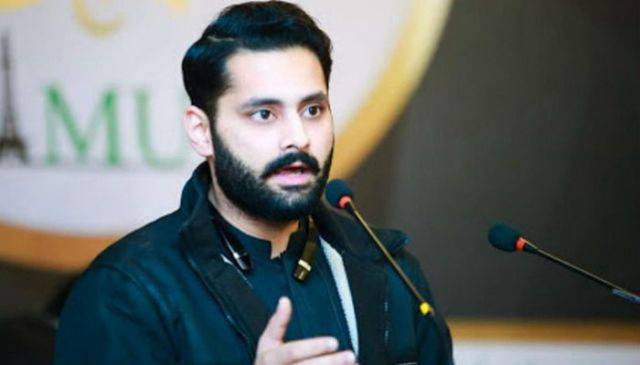It began with audience members asking Pakistani parliamentary candidate Jibran Nasir to declare his religion at a public forum, a request he politely refused on the grounds it is irrelevant.
Later, the mob started showing up. In the past week, three of Nasir’s public meetings in Karachi have been disrupted by religious hardliners - shouting out and shoving his supporters.
Nasir, a human rights lawyer, is a rare breed in Pakistan: an avowedly secular, progressive candidate in the overwhelmingly Muslim country of 208 million, where most parties appeal to an Islamic vote bank.
His independent candidacy is in stark contrast to the prevailing mood of Pakistan’s campaign, which has seen the rise of new ultra-right Islamist parties campaigning on protecting draconian blasphemy laws and denouncing the persecuted Ahmadi sect.
Liberal and secular-minded Pakistanis say the sheer number of religious party candidates, combined with their ultra-conservative rhetoric, has already shifted the agenda in their direction.
Nasir aims to challenge the prevalent extremist discourse.
“Our campaign is bigger than just my win... What it is symbolizing for the people is a change in narrative,” he told Reuters.
“That challenging extremists is possible ... not using religion to get votes is possible.”
Since launching his campaign, a number of clerics in Karachi have branded Nasir a blasphemer from the pulpit, a dangerous accusation in Pakistan that can lead to the death penalty, and labeled him an Ahmadi, a sect they consider heretics.
On Saturday, a mob chanting slogans associated with the new ultra-Islamist Tehreek-e-Labaik Pakistan party, which campaigns under the “death to blasphemers” rallying cry, descended on his public meeting, crowding around Nasir and intimidating his supporters.
“I believe it’s being done in a very organized manner,” Nasir said. “Our politics should be free from compromise, fear, and discrimination.”
Labaik spokesman Ejaz Ashrafi said his party “did not send anyone to do this”, adding that people running in elections should declare their faith.
Nasir gained nationwide prominence in 2014 after staging protests against the Red Mosque, the Islamabad center of a militant network with links to Pakistani Taliban strongholds in the northwest and in neighboring Afghanistan.
The mosque was the site of a military standoff in 2007, but within two years its chief cleric was freed from detention and was once again calling for strict Islamic rule across Pakistan.
The mosque campaign earned Nasir a phone call and death threats from a high-ranking Taliban commander.
“We are doing it for the millions of Pakistanis ... who right now are forced to choose amongst the lesser of evils, who are willing to embrace different political leaders with all their biases and religious bigotry,” he said.
“Every day I am carrying on with my mission, they are making a fool of themselves.”






